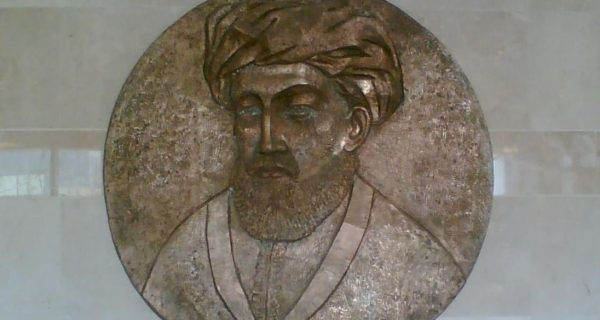I am an Agnostic man of mixed Hispanic and Ukrainian Jewish background, but I have long been fascinated by the illustrious figure of Maimonides. Here I want to explore what a returned Maimonides would teach us modern Jews, Christians, Muslims, and Agnostics interested in the Middle East and religion around the world this holiday season.
I think Maimonides would be shocked that in the 21st century there is so much seemingly religious conflict around the world – fundamentalism as well as hostility to religion in the West. He had lived in a time of change in which the Catholic West was trying to conquer the Holy Land from Muslim control, an era with other hot spots like Al Andalus and Byzantium. The three religions were trying to make sense of newly rediscovered texts by Aristotle and others, as well as the Hindu-Arabic numerals that would pave the way for the Renaissance. Maimonides would notice how we are living in a time of change, in which religious institutions in democracies are having to deal with mass secular culture and the increasing spread of scientific knowledge as well as immigrant groups with different cultures, or even moralistic intervention, due to globalization.
I think Maimonides would remind us that the Abrahamic religions are fundamentally Middle Eastern migrating siblings, like Abraham himself, including the roots of the West; that this is not the first time of mass movements of Christians or Jews or Muslims, newly independent states, or time of conversion; that what is important is equality and tolerance in society; that all religions teach us to love God and humility with the dynamic between reason and devotion to revelation and loving thy neighbor as thyself; that they teach forgiveness; that if one wishes to understand God, one should study philosophy and the sciences (knowledge of God’s creation) first; that philosophy is also important for science; and that historical true religion has always been rationally debated and pragmatic, not fundamentalist.
He also would want us to remember the lessons of the Crusades, that all sides suffered and all sides had some members that showed nobility (see Francis of Assisi), from Ashkenazi Jews on the Rhine to Orthodox Christians to Shia Muslims; and we must all heal from “an eye for an eye” as in Hammurabi, just as Maimonides as a doctor treated all; and for western interventionists to remember how no religion is better than any other. He’d say religion and culture must ever evolve, and that we must better understand how to make a better world for everyone, for he participated as a representative of the Jewish community in the flawed context of his time. He was not familiar with notions of the democratic contract, but he would think it should be embraced at this point, perhaps think it is in God’s plan.
And to Atheists he’d say: yes, people have done awful things in the name of religion, but religious organizations and individuals have done profound things throughout time, and if you demonize one Abrahamic religion – such as Islam – as evil, you demonize them all, and if one Abrahamic religion can be rational and loving, so can the others. Maimonides would warn that Muslims may fear that political intervention is an Atheist war on Islam. He would also point out that some of the worst anti-Semitism and Islamophobia, anti-black sentiments and even anti-Catholic sentiments, have come from something he’d never seen in his lifetime. White supremacist eugenic atheism has sadly reemerged with the alt right of recent years, counter to all reason, reason of which Maimonides was a master. We must come together in these times and remember Maimonides so as to bring about a never before seen golden age.


Abraham Heschel believe “prophetic inspiration was possible even in post-Talmudic times, and, indeed, had taken place at various times and in various schools, from the Geonim to Maimonides and beyond.” (Wikipedia)